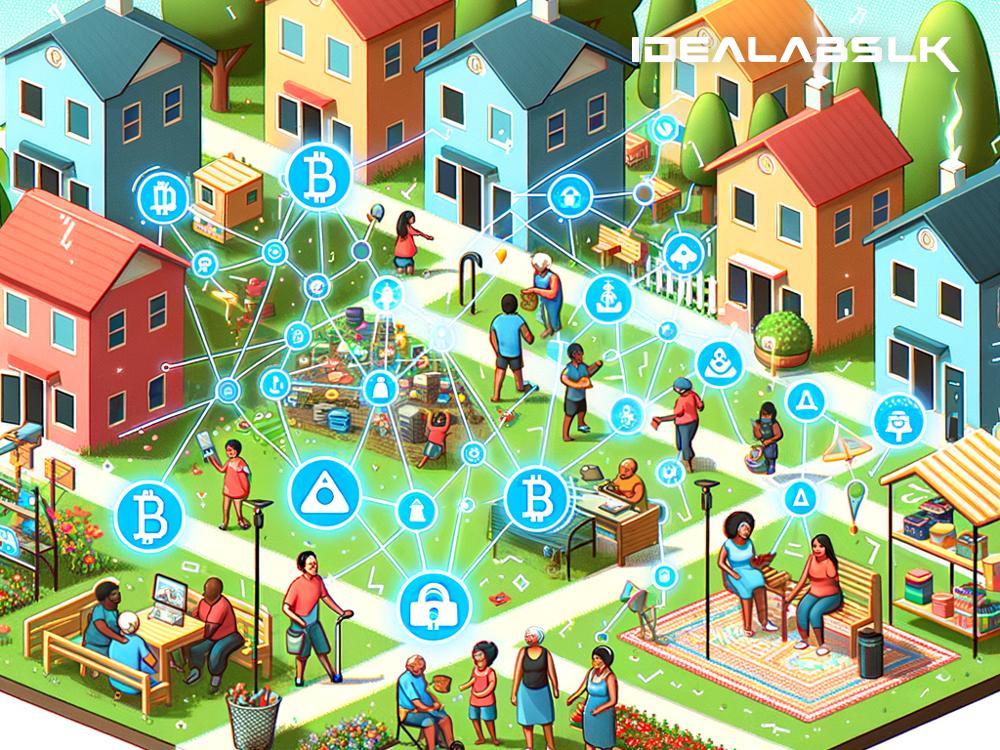The Role of Blockchain in Offering Affordable Housing Solutions
Housing is a basic need, yet for many, owning a home remains a distant dream. It's not just about the physical space; it's about security, belonging, and stability. As the global population grows and urbanization intensifies, the challenge of providing affordable housing becomes even more daunting. However, amidst these challenges, an innovative technology emerges as a beacon of hope—Blockchain.
Blockchain, the technology behind cryptocurrencies like Bitcoin, is no longer confined to the realms of digital currencies. It’s making waves across various sectors, including real estate, particularly in affordable housing solutions. But how exactly does blockchain fit into the affordable housing puzzle? Let’s demystify this in simple terms.
Understanding Blockchain
Imagine a book where you jot down all your transactions—be it buying a coffee or selling an old guitar. Now, imagine this book is digital, and instead of just you, everyone has a copy of this digital book. Every time someone makes a transaction, it's recorded in everyone's book. This system makes it nearly impossible for anyone to cheat because for that to happen, they would need to change the transaction in every single book, a Herculean task.
This is, in essence, what blockchain does. It’s a digital ledger that is decentralized, meaning no single entity has control over it. It's transparent, secure, and tamper-proof, making it an attractive tool for various applications, including affordable housing.
Bringing Trust and Transparency to Affordable Housing
One of the significant challenges in providing affordable housing is the amount of red tape and bureaucracy involved. From land acquisition to construction and finally allocation, the process is mired in complexities that often lead to corruption, misuse of funds, and delays. Blockchain introduces a level of transparency that’s unprecedented.
For instance, if the entire process—from funding to allocation—is recorded on a blockchain, it becomes accessible for verification by anyone. This visibility can drastically reduce corruption and ensure that funds and resources are used as intended. It would ensure that only the rightful beneficiaries receive the aid, making the process fairer and more efficient.
Simplifying Transactions and Ownership Transfer
Buying a house involves a lot of paperwork, from deeds to mortgages and contracts. Blockchain can simplify this process by digitizing these documents and storing them on a secure platform. Smart contracts, a feature of blockchain, can automate transactions, ensuring that they are only completed when all terms are met. This reduces the need for intermediaries, making the buying process faster, cheaper, and more accessible.
In affordable housing, where funds are limited, reducing transaction costs and improving efficiency can make a significant difference. It can make housing more affordable for more people and facilitate a smoother transfer of ownership.
Enhancing Funding and Investments
Funding is a critical aspect of affordable housing. Blockchain can unlock new avenues for financing such projects. Through tokenization, assets like real estate can be divided into smaller, digital shares that can be easily bought and sold. This can open investment opportunities to a broader audience, pooling resources from a global community.
Furthermore, blockchain-based platforms can facilitate crowdfunding, allowing individuals to directly fund affordable housing projects. This not only provides developers with the necessary capital but also fosters a sense of community involvement and support.
Looking Ahead: The Road to Integration
While the potential of blockchain in revolutionizing affordable housing is immense, integrating this technology into the existing systems will be a journey. It requires collaboration between tech experts, policymakers, real estate developers, and, importantly, the communities in need.
The process also demands robust regulatory frameworks that embrace innovation while protecting stakeholders. Moreover, promoting digital literacy is essential to ensure that the beneficiaries of affordable housing fully harness the benefits of blockchain-enabled solutions.
Conclusion
The dream of affordable housing is intertwined with the promise of technology. Blockchain, with its unique offerings of transparency, efficiency, and security, can play a pivotal role in turning this dream into reality. It’s not just about building houses; it’s about creating inclusive communities where everyone has a place to call home. As we navigate this technological evolution, the vision of affordable, accessible, and secure housing for all edges closer. With continued innovation, collaboration, and commitment, blockchain could indeed be the key to unlocking the door to affordable housing solutions worldwide.

